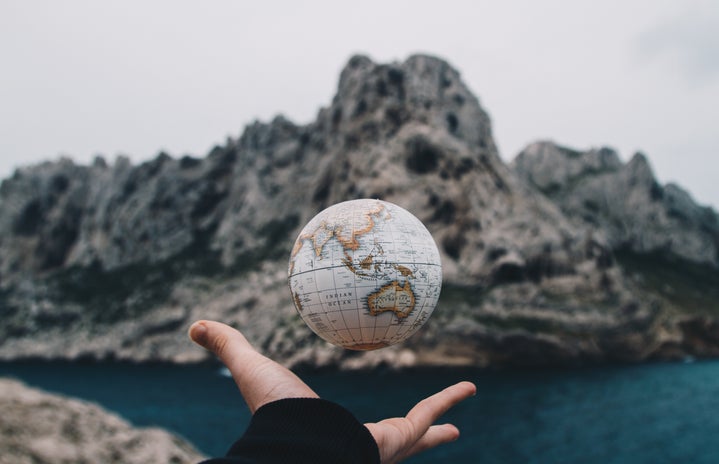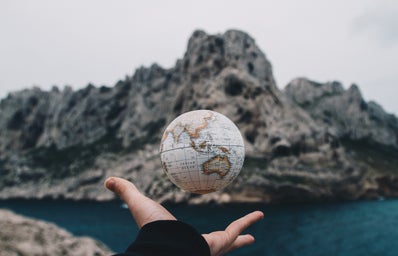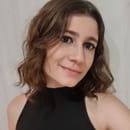A healthier ocean means a healthier planet. Covering 71% of the Earth and with more than 500,00 species according to the Georgia Tech Institute, the ocean is essential to our lives because it provides many – if not all – the resources we need. Together with that, it provides a buffer to global warming and to the decline of biodiversity.
For a better understanding about the role of the oceans in our lives and the importance of taking care of it, we interviewed Nicole Malinconico, Biologist and Master in oceanography from the Federal University of Pernambuco (UFPE) and a doctoral student in oceanography at University of São Paulo (USP). She is Executive Secretary of the UNESCO Chair for ocean sustainability and part of the Marine Management, Ecology and Conservation Laboratory (IOUSP) in which she develops research in the areas of beach management and Marine Spatial Planning.
Before we move on, it is essential to understand what exactaly sustainability is. According to the University of Alberta, it means “ meeting our own needs without compromising the ability of future generations. We also find concerns for social equity and economic development.”
Why is taking care of the ocean so important for us?
“The ocean is responsible for climate and temperature regulation; termic exchange that comes from marine currents, forming flows known as El Ninõ and La Niña”, explains Nicole Malinconico. “Prefroms gas exchange between atmosphere and the environment through fictoplantons and If we release high amounts of sewer, at one point fitoplancton will get affected, leading to a climate dysregulation.”
“With all that, it gives us food,energy resources,the air we breathe. So taking care of the ocean is taking care of ourselves.” affirms Nicole.
Imbalance and consequences
There are many different ways to identify this phenomenon. At the lab where Nicole is working, they assess and analyze the accumulation of pollution and heavy metals in shell and mollusc. It is also possible to analyze if the sea is rising and beaches shrinking. Once that happens, we can lose all the services this area can offer, from the ones related to economy, culture, and entertainment to the ability of being a place where turtles can lay their eggs.
An imbalance can have a huge range of impacts and irradiate from marginal ecosystems, like the mangrove, to the Sahara desert.
Is it possible to revert the damages?
It depends a lot on how much this living being was affected. Nicole warns that even though marine life has huge resilience, it gets to a point where it can no longer fight and it vanishes, causing the loss of a whole ecosystem.
Although it is not easy, it’s not impossible to ‘bring back’ some endangered especies. Coral Vita, for example, is a business focused on coral reef restoration, by creating some farms. It means that they get small fragments from the ocean and break into pieces. By stimulating tissue growth, it can generate clones 50 times faster than in the ocean.
This kind of job is extremely important for bringing balance to marine life, since coral reefs are known as “ rainforests of the sea” and provide many resources for wildlife and humans. According to the United Nations Environment Programme (UNEP), fisheries and tourism play an important economic role for the global economy thanks to coral reefs, and it is also because of them that coastlines can be protected from increasing damage by buffering shorelines against waves, storms and floods. It helps to prevent loss of life, erosion and other ways of damage to human lives and properties.
How can we help?
Nicole Malinconico thinks that the first step to make a difference is taking effective actions to avoid the impact. While at the beach, don’t care only about your trash, but other people’s trash as well. If you want to help even more, get involved with public policies, talk and warn people so that you can be a leader in your community, spreading the importance of taking care of marine life, and how people can do that day by day.
Also, get informed! Unesco has a program called oceanic culture, which provides access to knowledge about the ocean for everyone. They released a manual in order to allow educational institutions to implement the curriculums. You can also check the ocean literacy portal, which contains courses, experts and more. In addition, we have projects like Cátedra UNESCO, a chair linked to USP which seeks to bring together people to promote ocean sustainability.
And if you live in São Paulo or nearby, from september 15th to 18th, the Sustentável Show will happen at Ibirapuera Park, with expositions where the public will be able to learn more about sustainability and how to make a change.
Do you get it now?
Everything we do or consume is, in some way, connected to the ocean. It is no surprise that many organizations work to help us think about sustainable development, and many goals are set to protect it.
We are only 8 years away from the United Nations Sustainable Development Goals deadline. In order to reach it, it is necessary to obtain more food, jobs and energy from the ocean, in a more sustainable way. Although big companies can put their profit in first place most of the time, it is still essential to raise awareness and think about following a sustainable pace to avoid our marine life losses, just like the 20% of coral reefs that have already disappeared, according to National Geographic. Thinking about a better future for life on Earth means to take a look at sustainable alternatives to our resources – and the oceans can’t be left behind.
——————————————————–
The article above was edited by Isadora Noronha.
Like this type of content? Check Her Campus Cásper Líbero’s home page for more!


